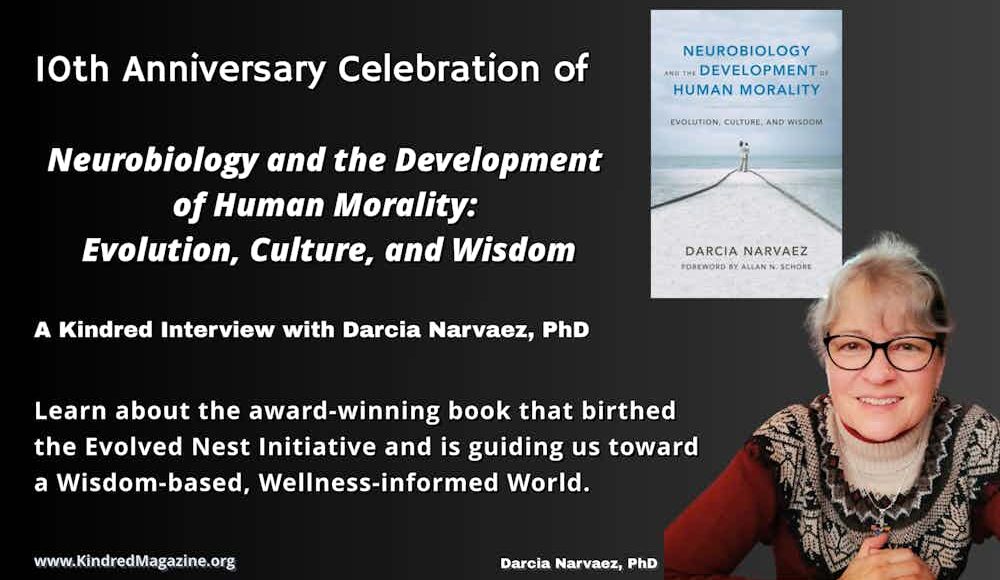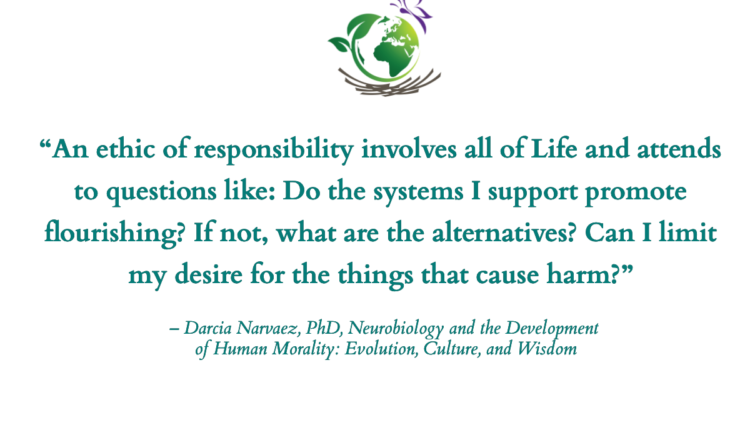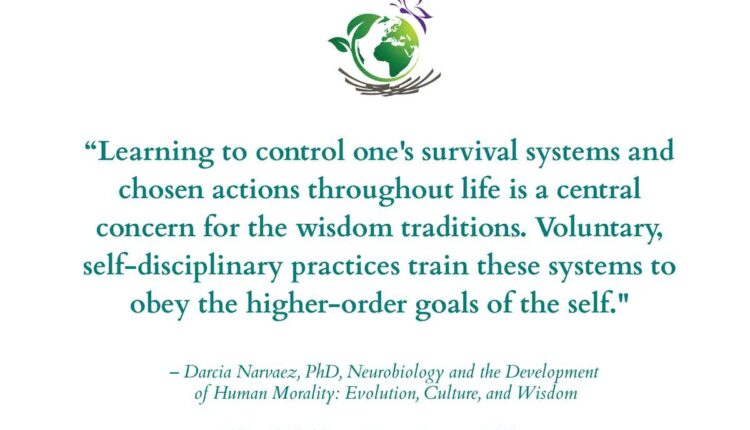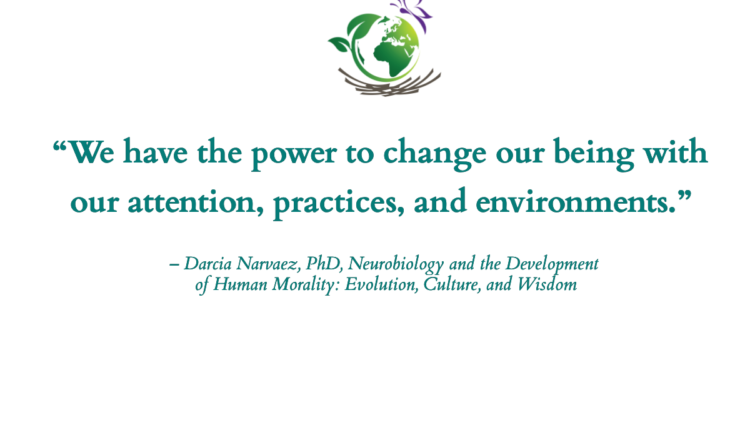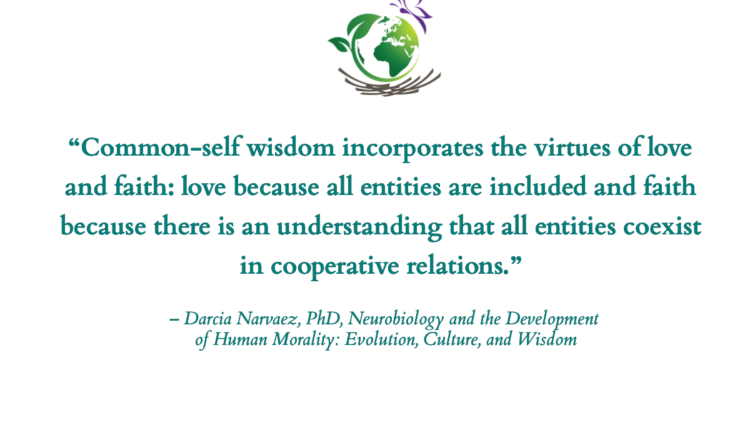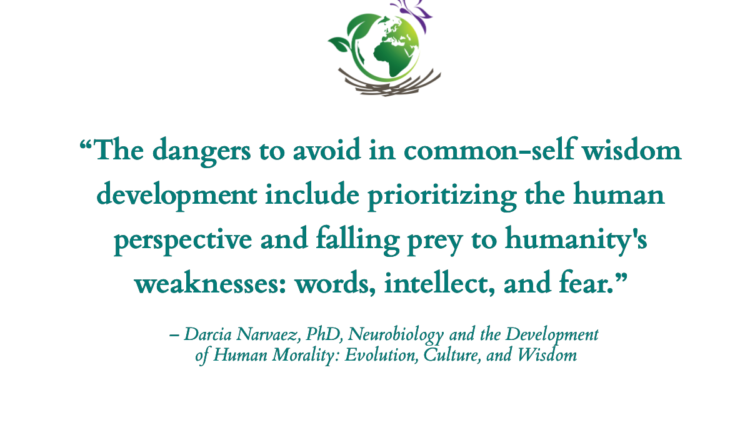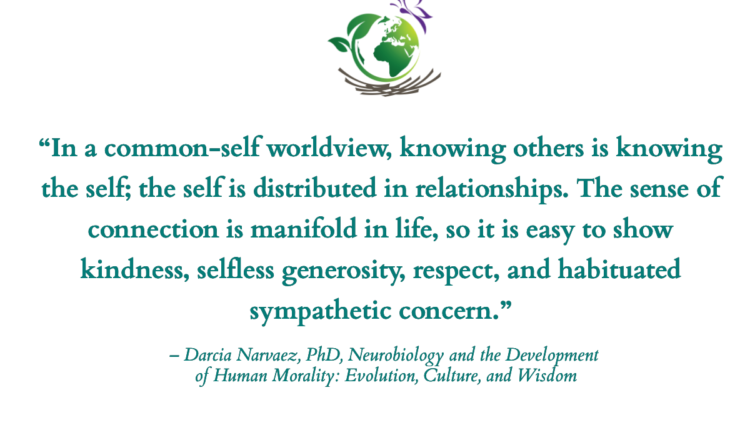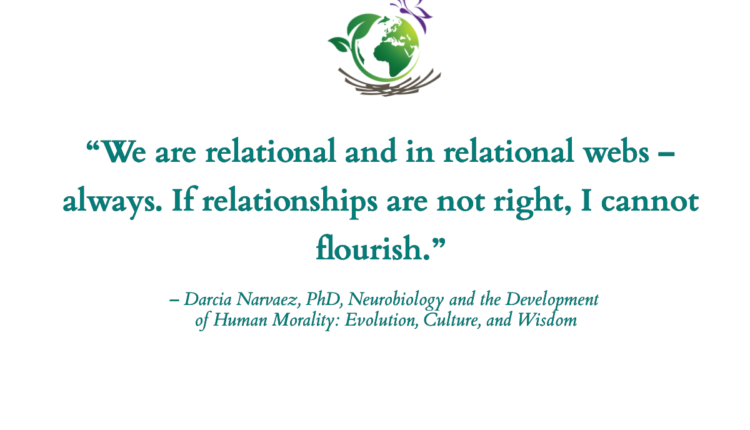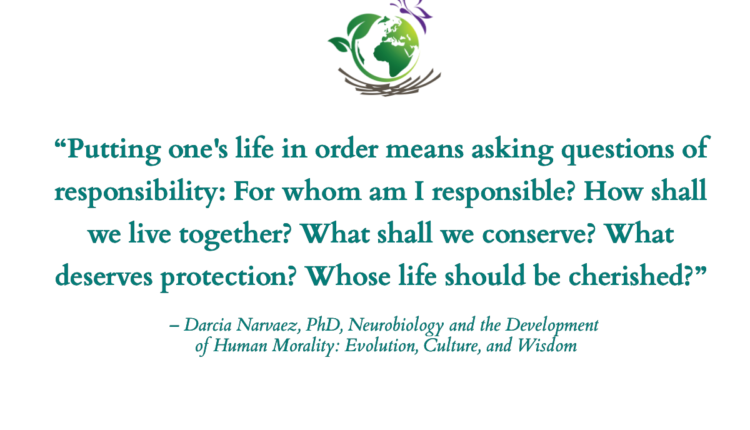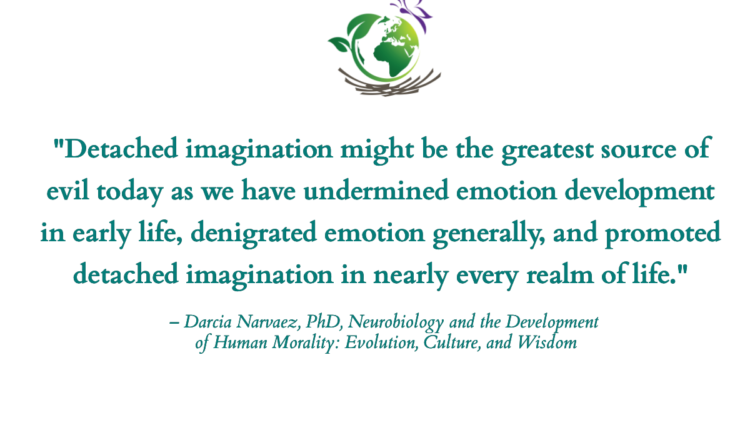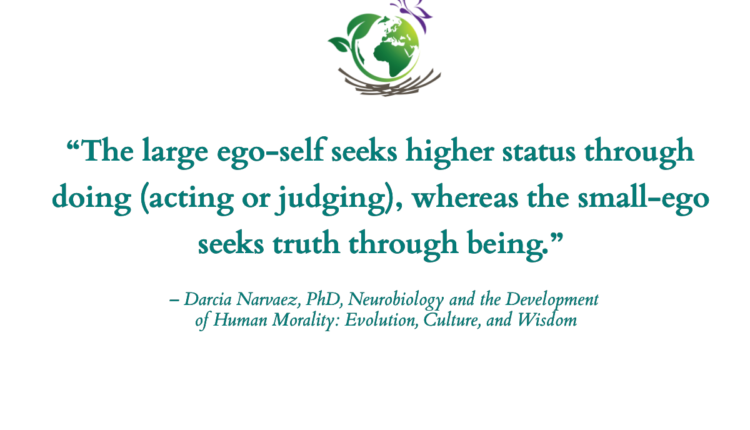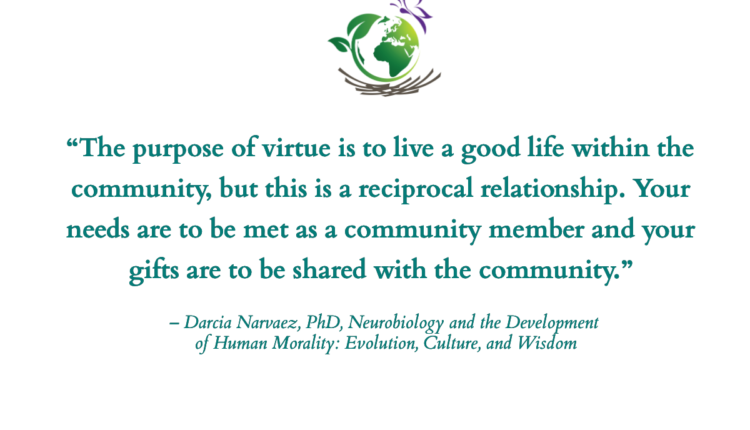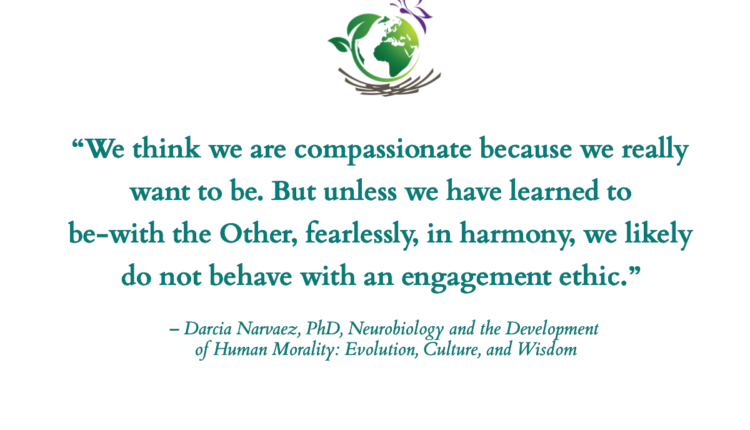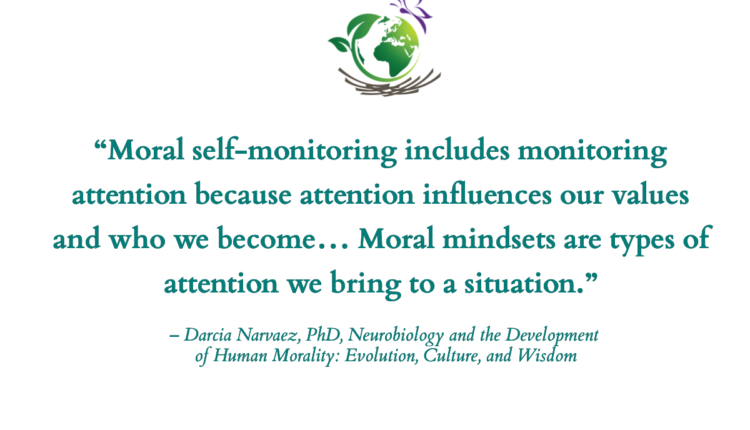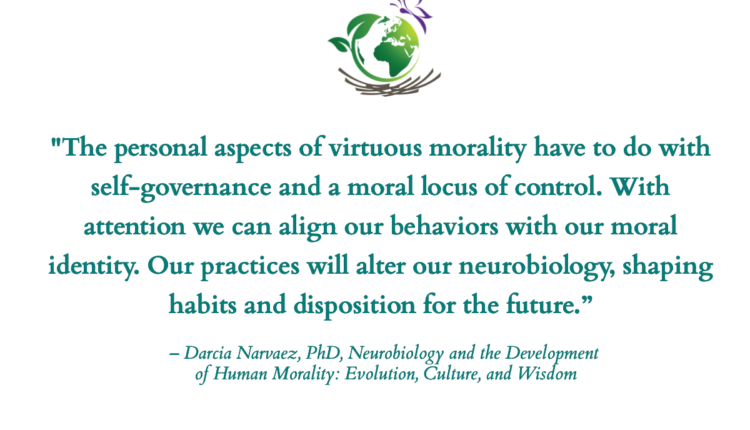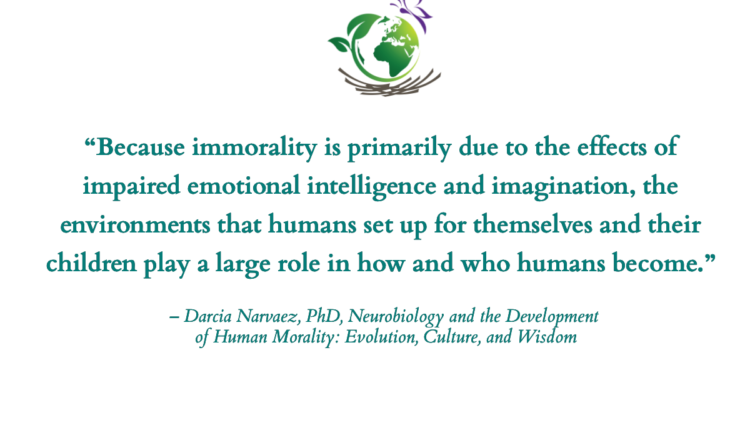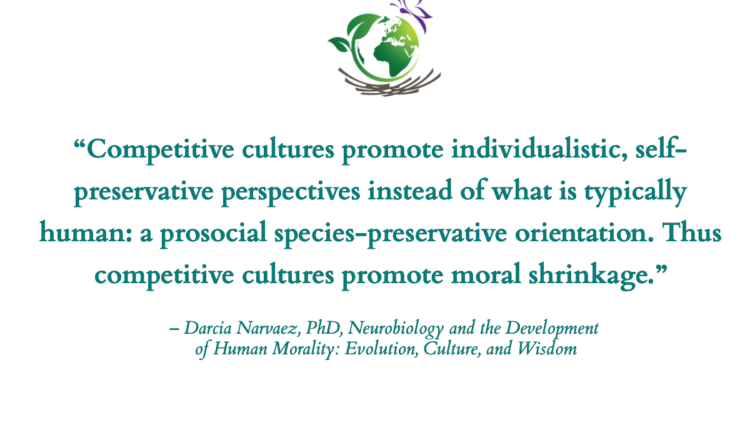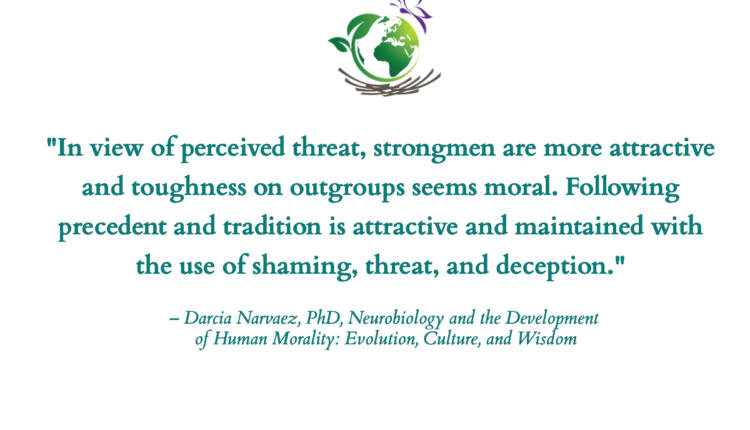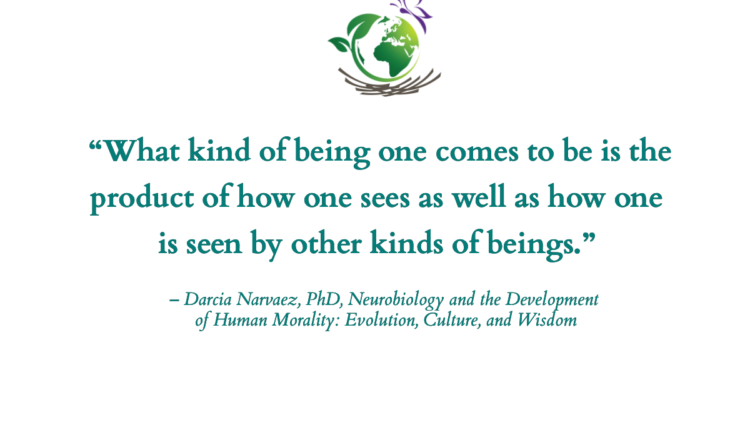10th Anniversary Celebration with Darcia Narvaez Of The Book That Birthed The Evolved Nest, A Video Discussion
Quotes from Neurobiology and the Development of Human Morality: Evolution, Culture, and Wisdom
About the Discussion
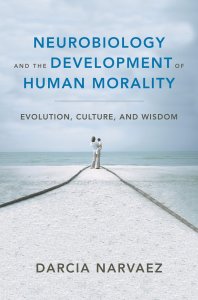
Lisa Reagan, Kindred’s editor, and Darcia Narvaez, Kindred World’s president, discuss the book that started it all, Neurobiology and the Development of Human Morality: Evolution, Culture, and Wisdom. First published in 2014, the book received the 2015 William James Book Award from Division I of the American Psychological Association as well as the Moral Development and Education SIG at the American Educational Research Association. In 2017, the book was chosen from among more than 360 total entries from 170 universities and 30 countries for the Joseph Ratzinger-Benedict XVI Foundation’s Expanded Reason Award.
Since 2019, Darcia and Lisa have worked to bring this book’s award-winning research and science to the public through the Evolved Nest Initiative and its many projects, including a trilogy of short films funded by the Vatican award monies. Kindred Magazine is a sister-initiative of the Evolved Nest Initiative. Both are collaborative, educational initiatives of the award-winning, American nonprofit, Kindred World.
In this celebratory podcast of Neurobiology and the Development of Human Morality’s 10th anniversary, Lisa and Darcia discuss the book’s challenges coming into publication, its unique transdisciplinary approach, and the ongoing work through the Evolved Nest Initiative and Kindred to unpack its far-reaching potential for our human family and planet’s return to our evolutionary pathway to wellbeing, our Evolved Nest.
Neurobiology and the Development of Human Morality: Evolution, Culture and Wisdom outlines an evolutionary framework for early childhood experience that is grounded in developmental systems theory, encompassing not only genes but a wide array of inheritances and epigenetic factors. It describes the neurobiological bases for the development of distinctive moral mindsets, addressing ethical functioning at multiple levels of complexity and context before turning to a theory of the emergence of wisdom. Finally, it suggests that we honor the sociocultural orientations of our ancestors and cousins in small-band hunter-gatherer societies—the norm for 99% of human history—for a re-envisioning of an organic, sustainable moral life, from the way we value and organize child raising to how we cooperate with a living planet.
How to Get Involved and Learn More About Our Evolved Nest
You can read the book’s Introduction and Chapter One here.
Visit the Evolved Nest Initiative’s Virtual Learning Center and website at www.EvolvedNest.org.
Learn more about the Evolved Nest on Kindred here.
Join the online discussions in our dedicated Mighty Networks platform at www.KindredCommunity.org.
Visit Narvaez’s University of Notre Dame website to find a complete list of her publications, educational materials, papers and videos.
You can discover all of Darcia’s textbooks and trade books in our BookShop store here. These purchases support independent book sellers and our nonprofit work.
Watch the Interview
Listen to the Interview
More About the Book

Moral development has traditionally been considered a matter of reasoning―of learning and acting in accordance with abstract rules. On this model, largely taken for granted in modern societies, acts of selfishness, aggression, and ecological mindlessness are failures of will, moral problems that can be solved by acting in accordance with a higher rationality. But both ancient philosophy and recent scientific scholarship emphasize implicit systems, such as action schemas and perceptual filters that guide behavior and shape human development. In this integrative book, Darcia Narvaez argues that morality goes “all the way down” into our neurobiological and emotional development, and that a person’s moral architecture is largely established early on in life. Moral rationality and virtue emerge “bottom up” from lived experience, so it matters what that experience is. Bringing together deep anthropological history, ethical philosophy, and contemporary neurobiological science, she demonstrates where modern industrialized societies have fallen away from the cultural practices that made us human in the first place.
Neurobiology and the Development of Human Morality advances the field of developmental moral psychology in three key ways. First, it provides an evolutionary framework for early childhood experience grounded in developmental systems theory, encompassing not only genes but a wide array of environmental and epigenetic factors. Second, it proposes a neurobiological basis for the development of moral sensibilities and cognition, describing ethical functioning at multiple levels of complexity and context before turning to a theory of the emergence of wisdom. Finally, it embraces the sociocultural orientations of our ancestors and cousins in small-band hunter-gatherer societies―the norm for 99% of human history―for a re-envisioning of moral life, from the way we value and organize child raising to how we might frame a response to human-made global ecological collapse.
Integrating the latest scholarship in clinical sciences and positive psychology, Narvaez proposes a developmentally informed ecological and ethical sensibility as a way to self-author and revise the ways we think about parenting and sociality. The techniques she describes point towards an alternative vision of moral development and flourishing, one that synthesizes traditional models of executive, top-down wisdom with “primal” wisdom built by multiple systems of biological and cultural influence from the ground up.
First published in 2014, the book received the 2015 William James Book Award from Division I of the American Psychological Association as well as the Moral Development and Education SIG at the American Educational Research Association. In 2017, the book was chosen from among more than 360 total entries from 170 universities and 30 countries for the Joseph Ratzinger-Benedict XVI Foundation’s Expanded Reason Award.


